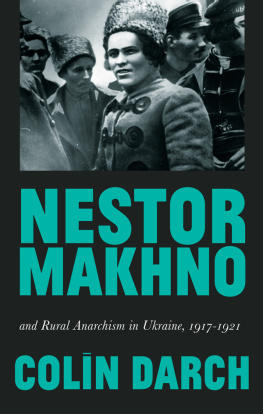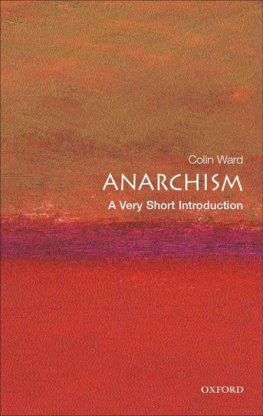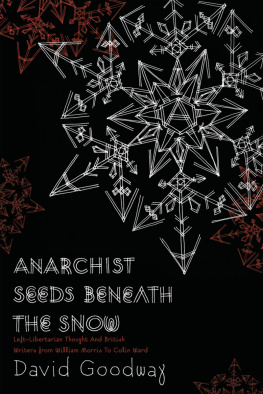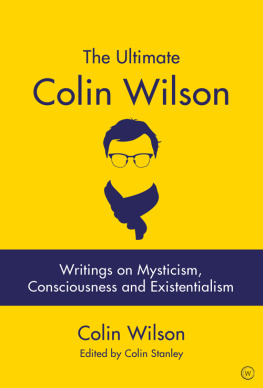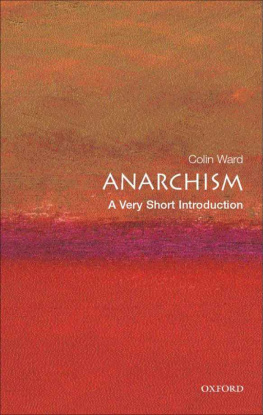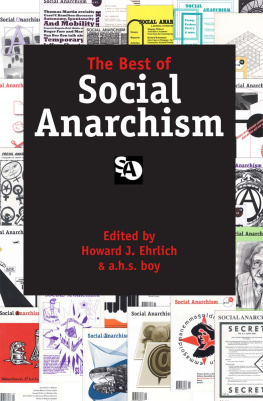Colin Ward in conversation with Roger Deakin
A feature of the memorial meeting in London was the showing of an excerpt from a film of Colin in conversation with the late Roger Deakin. The films director, Mike Dibb, here describes his association with Colin and the making of this film: I first met Colin in the 1970s and, although we tried to get one or two TV collaborations off the ground, sadly these never happened. So I was delighted when, in 2003, I was finally able to capture some of Colins eloquence, insights and mischievous glee in the autobiographical conversation I filmed with his Suffolk neighbour, friend and kindred spirit, the late writer Roger Deakin. This DVD, over 2 hours long, is available by mail order from Harriet Ward, 1, Church Cottages, Cross Green, Debenham, Suffolk IP14 6QF, price 11.50 including P&P, or from Housmans Bookshop in London, 020 7837 4473.
RememberingColin Ward
1924-2010
Colin Ward was an anarchist, a journalist, and the author of books on architecture, work, childhood, education, social history and many other topics of importance to those who seek a better world. A quiet man of great integrity, he won an admiring and affectionate readership across the world, and was one of the most influential thinkers of his generation.
At his funeral on 1 March 2010, relatives and friends were invited to remember Colin, and these talks comprise the opening section of this short collection. A memorial meeting was held at Conway Hall, London, on 10 July, 2010, and the tributes given there follow. A selected bibliography of Colins major publications is provided at the end.
At the Funeral
Ipswich Crematorium
Monday, 1 March, 2010

Opening Address
Ben Ward
Good afternoon everyone. As you know, were here today to celebrate Colins life and to say goodbye. I went to a few funerals with Colin and he would always say that they were, by and large, jolly occasions, opportunities for old friends and family members to get together. With that in mind, weve put together a service which we hope Colin would have enjoyed and we hope it will make you smile a bit too.
Colin spent his first 55 years in London (except for his five years in the army between 1942 and 1947) and his next 30 years in Suffolk. So he didnt move around an awful lot. But his ideas, his spirit and his special personality travelled a long way.
One of Colins catch-phrases, particularly when he was offered another slice of toast at lunchtime or a second helping of whichever delicious dish Harriet had prepared, was think of others. For the next hour or so, were going to ignore that advice and think about him.
Id like to invite George West to say a few words. George has been ringing up Colin twice a week for the last 30 years, but they go back a lot further than that, as you will shortly hear.
A Steady Rhythm of Friendship
George West
I met Colin in November 1950. We both travelled to the same office from Gants Hill tube station, the Essex Shangri-la. Together for 60 years we enjoyed our tangled lives. To encapsulate the essence of someone is poetry, and Im no poet. My memories are not highs and lows but a steady rhythm of friendship. The man did not have in him any spite, jealousy or envy. Was he virtuous? I have no idea, but his actions came from the same seed. That is how I see him now the present tense, because we make each other: he is part of me.
The office in which we worked was not large about eight assistants designing public housing with dedicated commitment. At that time in the office there was an enthusiasm for growing avocado plants. Colin and I thought we should try ourselves, so begins the tale. We went to the nearest greengrocery, at the corner of Davis Street and Oxford Street, just like a small town. Our idea was to buy an avocado pear and from its many seeds grow many plants. You must remember, in 1950 the avocado pear was a most exotic purchase. We were successful and started back to the office. A lady outside the shop coming towards us dropped her hand-bag. Colin immediately stepped forward, picked up the hand-bag and gently handed it back to her. Colin waited, and then said, You could say thank you. She then punched Colin in the chest!
In the office we sliced the pear and were outraged that we had only the single nut. Those were simple, Cider with Rosie days.
So! Let us all celebrate the memory of Colin and joyfully acknowledge our debt to this lovely man.
A Constant Influence
John Pilgrim
However certain our expectation
The moment foreseen may be unexpected
When it arrives. It comes when we are
Engrossed with matters of other urgency
Those words, from Murder in the Cathedral, have a particular resonance today. I was writing an obituary of another friend, John Rety, when I heard that Colin Ward too had died. These two fit together in my mind. It was John Rety, then editing a coffee house magazine called Intimate Review, who asked me to go to the Malatesta Club.
Its rumoured, he said darkly, that anarchists go there. See what you can find out. Not knowing what anarchists were I went with some trepidation. There I was impressed enough by Philip Sansom to take the newspaper Freedom. Later when Colin launched Anarchy, I subscribed to that too.
I had a street bookstall at the time, in Charing Cross Road. One day Colin Ward wandered up and surveying the science fiction racks, asked me to write a piece on science fiction for his magazine. Later a revised version won me a Mature State scholarship to university. This major life change was the direct result of Colins unassuming intervention.
And it didnt stop there. I had originally intended to read history, but in Anarchy I was reading people we knew collectively as Colins sociologists. Jock Young, David Downes, Stan Cohen, Laurie Taylor, all later to become important figures. So I read sociology and politics instead.
Colin remained a constant influence. When asked to be the libertarian speaker at a conference at Hull, it was Colins Anarchy as a Theory of Organisation I used as a basis for my own paper.
We met up again when I came to live in Suffolk. Up against a time problem, he asked me to do an obituary of Ron Fletcher, formerly Professor of Sociology at York, and my external examiner at Hull. I didnt know him, I said. Although I did see him get into a car once. Thatll do, said Colin, and I know you have his books. That started me writing again. Colin Ward was a very direct influence on my life.
More importantly he developed a theory of organisation and desirable social change that made rather more sense than the standard top-down ideas of official ideologies. It is not an exaggeration to say that his ideas, on housing, on education, on the unofficial structures of everyday life, influenced the thinking of many people all over the world.
It was particularly fitting that he should have been appointed to a Chair of Social Policy by the London School of Economics. He was, like Richard Titmuss who founded that Department, an autodidact who left school without formal qualifications, and like Titmuss, made his mark through sheer perception.
Colin would, I think, agree with another character from Murder in the Cathedral who says,
I see nothing quite conclusive in the art of temporal government


